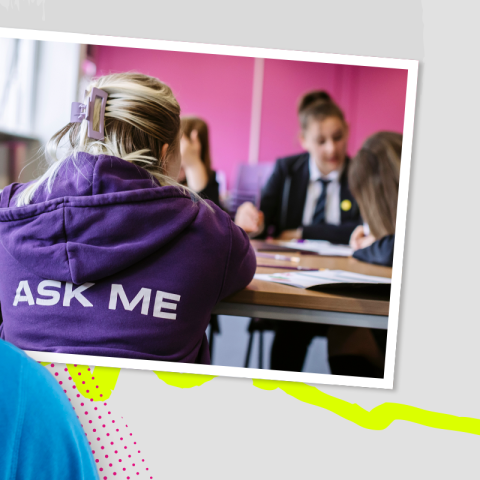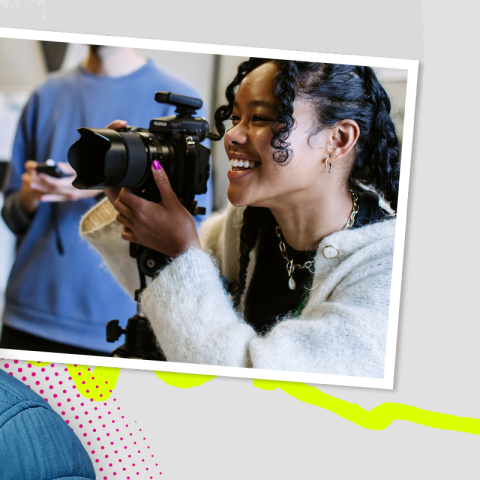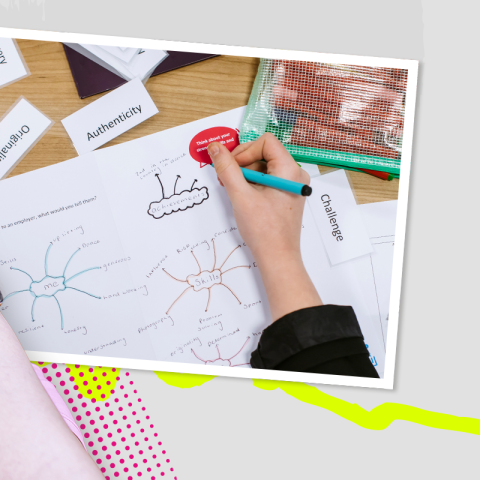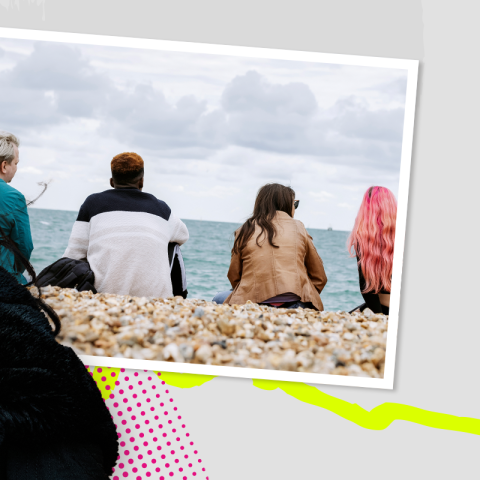

Understand your Post-16 options
Choose the best path to achieve your future plans
From apprenticeships, to finding a job and going to college or sixth form, different pathways and qualifications suit different people.
But the good news is, there are many options available to pick from. Finding the one that suits you can help you make the best choices for your future. This page looks at some of the things you can do next.
Explore your options after Year 11
Not sure about what to do when you leave school?
Go through the different qualifications you could do when you leave Year 11, as well as some of the key things to consider.
Qualifications and study levels
Before we look at the different pathways, let's talk about qualifications and study levels. At school and college, you usually call qualifications by their name, like ‘GCSE’ and 'A Level'. The same qualifications are referred to by their level in college, university and employment, such as 'Level 3'.
Your GCSEs are Level 2 qualifications. Typically, you'll move onto Level 3 once you leave Year 11. Although you may need to complete an extra Level 2 qualification first, for example if you choose to study a subject you’ve never done before.
Types of Level 3 qualifications
The following qualifications are study options available at Level 3:
- A Levels – study subjects and related subjects you took for GCSE at a higher level
- T Levels – partner with employers to get skills for the workplace
- Level 3 vocational qualifications such as BTECs – get practical skills for a particular area of employment
- Advanced apprenticeships – combine work and study
A Levels
Studying A Levels at Level 3 is a good choice if you want to study a range of subjects and prefer exams to ongoing assessments. You'll study 3 subjects equally and complete some coursework, but most of your assessments will be exams at the end of Year 13.
T Levels
T Levels are a great choice if you like a mixture of classroom teaching and hands-on, practical learning. If you choose to study T Levels, you'll study 1 subject and undertake industry placements during your course. You'll spend 20% of your time in the workplace and the rest of your time in college.
Vocational studies
Vocational courses are great if you learn best by doing things and prefer coursework to exams. You'll study 1 subject area and gain work experience as part of your course. You'll be assessed by regular practical assessments, coursework, and some exams on most qualifications.
Apprenticeships
An advanced apprenticeship is a good choice if you’d like to move away from the classroom and start to experience the world of work. You’ll gain practical on-the-job experience, spending 20% of your time in college or with a training provider. You’ll be assessed on completing tasks in the workplace, and take part in a final assessment at the end of your course.
How to pick the best option for you
- Check the entry requirements for any future degree courses or jobs you'd like to do
- Ask yourself how you learn best? Then look at which pathway is likely to offer you the best chance of success
- Consider whether your subject choices link with your interests and future plans
- Think back on your experiences at school and what you've learnt about yourself to see which option is a good fit for you
Want to find out more about level 3 choices and what you can do at 16? Take a look at UCAS or Career Pilot, or explore work-based learning options with All About School Leavers.
Hear what out students thought about before starting uni
Thinking about uni?
We asked some of our students what their dream careers were before uni, what they're studying now and what they want to do after they graduate.
Text: Thinking about uni? We asked some of our students about their journey. When you were growing up, what did you want to be?
Ethan: When I was growing up, I always knew I wanted to be an engineer.
Charlotte: A teacher.
Denise: Be an actress.
Lilly: Singer.
Rihanna: A scientist.
Caitlin: An Olympian.
Ann-Sophie: Woman in STEM.
Henrietta: Growing up, I always knew I wanted to be a businesswoman and one day own my own business.
Immy: When I was growing up, I wanted to be a doctor.
Tami: A lawyer or an accountant.
Timothy: A radiologist or a pharmacist.
Jasmin: When I was growing up, I wanted to be all sorts of different careers, actually. I wanted to be a writer, a paramedic, a police officer, a beautician. I didn't know what I wanted to do.
Text: What was your favourite subject at school?
Charlotte: At school, my favourite subject was history.
Matt: Chemistry.
Shamica: P.E., physical education.
Ellie: History.
Susan: Science.
Caitlin: PE and chemistry.
Denise: Drama.
Ethan: Design engineering.
Molly: At school, my favourite subject was science, specifically biology, because I like learning about how the body works.
Molly: English.
Sian: Art.
Timothy: Geography and that was because we got to learn about all the cultures across the world.
Henrietta: My favourite subject in school was ICT.
Jasmin: Spanish because I loved learning the language and being able to communicate.
Ann-Sophie: Maths and product design.
Text: What do you study now at university?
Shamica: At the University of Portsmouth, I study Sport, Health and Exercise Science.
Sian: Psychology.
Susan: Diagnostic Radiography and Medical Imaging.
Tami: I'm a master's student studying Finance.
Timothy: At uni, I now study Pharmacy.
Rihanna: International Development and French.
Molly: Biomedical Science.
Lilly: BA Honours in Journalism.
Harriet: The Operating Department Practice.
Matt: At uni, I now study Psychology.
Jubilee: Architecture.
Denise: Criminology and Forensic Studies.
Ellie: Marketing.
Ethan: Mechanical Engineering.
Immy: At uni, I now study Animation.
Text: What is your favourite thing about uni?
Charlotte: One of my favourite things about uni is not only the fact that I find my course really interesting, but I've also joined the Lacrosse Society, which is a new sport I've never played before.
Ann-Sophie: The broad range of subjects I learn within my degree.
Caitlin: The independence and freedom you get.
Henrietta: Lecturers that are constantly supporting you and motivating you to do well.
Ethan: The depth that you study your chosen subject in.
Jasmin: I found out what career I wanted to do, I've had help with work experience and career choices and CVs.
Molly: It's being able to explore amazing new places such as Portsmouth.
Text: What's next after uni?
Denise: My next step after uni is, hopefully, a role in human resources or recruitment.
Ann-Sophie: Get my masters and, hopefully, become a chartered engineer.
Charlotte: Doing my PGCE teacher training for secondary level.
Ellie: Gain more experience in marketing and PR and, hopefully, eventually set up my own business.
Harriet: It's working for the NHS as an anaesthetic practitioner.
Matt: Hopefully, to get onto a Masters.
Susan: My next step after uni is to become a diagnostic radiographer in a hospital.
Ann-Sophie: My dream is to become a music features writer.
Denise: Getting onto a masters programme in neuropsychology.
Text: Whether you know what you already want to do, or even if you're not sure, we're here to help.




